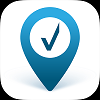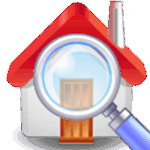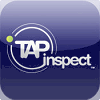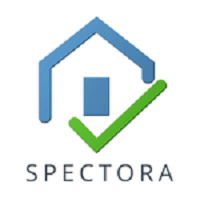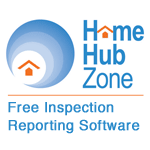Yes, most house inspection software can be accessed from numerous devices and platforms, making it easy for inspectors to utilize on the go. This includes desktop computers, laptops, tablets, and smartphones, as well as various operating systems including Windows, iOS, and Android. This flexibility enables inspectors to work efficiently and effectively on any device of their choice, increasing productivity and improving the overall inspection process.
List of 20 Best Home Inspection Software
ReachOut Suite - the leading field service management solution. Our free forever plan is perfect for service companies, providing seamless scheduling, activity tracking, and technician management through our cloud-based platform. Keep your team organ...Read More ReachOut Suite
Inspector Nexus is a home inspection software that offers the perfect blend of convenience and effectiveness. Our state-of-the-art technology allows inspectors to customize report templates, seamlessly sync devices, and receive reliable customer supp...Read More Inspector Nexus
Inspection Manager solution for seamless and effective home inspections. This innovative tool comes equipped with social media integration and cutting-edge features like video and photo annotation, elevating your home inspection business to greater s...Read More Inspection Manager
Spectacular - the leading software for seamless and user-friendly home inspections. Our powerful tool offers fast processing and convenient options for creating comprehensive reports with images and videos. With the unique ability to generate PDF rep...Read More Spectacular
Horizon Inspection Software solution for producing polished and detailed home inspection reports. Our software boasts a user-friendly interface with a range of efficient tools, simplifying the report writing process. Our interactive content enables c...Read More Horizon Inspection Software
Tap Inspect is a home inspection solution that transforms the way you conduct business. With its advanced tools, you can effortlessly create modern reports and efficiently manage your inspections. Used and trusted by over 400,000 inspectors, Tap Insp...Read More Tap Inspect
Palm-Tech is a leading home inspection software that boasts a web-based platform and effortless compatibility with the latest tech tools. Designed with ease of use in mind, it allows inspectors to efficiently conduct on-site inspections on iPhone, iP...Read More Palm-Tech
HomeGauge is a home inspection software that delivers professional and user-friendly reports. With an array of customizable templates for various property types, including single family homes, commercial buildings, and new constructions, HomeGauge si...Read More HomeGauge
Spectora is a home inspection software that revolutionizes the way you create exhaustive inspection reports. Designed for all types of inspections, from residential to commercial and specialized ones like radon and pool safety, Spectora boasts intuit...Read More Spectora
Property Inspect is a property management solution for effortless and efficient operations. Our comprehensive inspections streamline and centralize all tasks, ensuring the safety of your properties, assets, and tenants. Say goodbye to manual manageme...Read More Property Inspect
HomeHubZone is home inspection software designed to streamline the inspection process for professionals in the industry. With customizable reports and efficient client communication, it enhances workflow and ensures accurate evaluations at every stag...Read More HomeHubZone
3D Inspection Software – solution for buyers and agents in the home inspection industry. Our all-in-one software offers a powerful, flexible, and versatile package for collecting data, generating reports, and managing jobs and contacts. Stream...Read More 3D Inspection Software
SafetyCultures iAuditor mobile app solution for creating, using, and sharing checklists for comprehensive safety and quality management. With automatic report generation, stay organized and efficient while managing safety and ensuring quality at an a...Read More SafetyCulture
zInspector, the premier on-cloud inspection software! With over 10,000 photos at your fingertips, easily create customized reports and send them as PDFs. Simplify your inspection process and elevate your reports with zInspector. Say goodbye to juggli...Read More zInspector
JRS Innovation Inspection is a mobile app that is transforming vehicle inspections and maintenance. With a proven track record of over 5000 satisfied clients, this cutting-edge tool streamlines fleet management through seamless integration, user-frie...Read More JRS Innovation Inspection
dSnag! solution for flawless home inspections. Leave no detail unchecked with the power of technology and intuitive features. Feel confident and reassured with precise and dependable results for homeowners and property managers. Effortlessly streamli...Read More dSnag!
EZ Home is the groundbreaking home inspection system that streamlines the report writing process. Say goodbye to tedious and disorganized reports – our user-friendly tools allow for customized templates, summaries, and visually appealing desig...Read More EZ Home
IRBpro – solution for streamlining institutional review board processes. Our easy-to-use software offers advanced compliance tracking, automated task handling, and real-time data analysis for efficient decision-making. Enjoy improved efficienc...Read More IRBpro
magicplan is a contractor app. Streamline your process with instant floor plans, field reports, and accurate estimates. With over 5000 satisfied businesses, magicplans advanced technology and user-friendly interface simplify project management. Measu...Read More magicplan
InspectIT is a inspection software that simplifies report management on-the-go. Easily edit report photos directly from your mobile device. Stay organized and on top of upcoming inspections with is a calendar view. This software streamlines your insp...Read More InspectIT
Learn More About Home Inspection Software
- What Is Home Inspection Software?
- What Are The Recent Trends In Home Inspection Software?
- Benefits Of Using Home Inspection Software
- Important Factors To Consider While Purchasing Home Inspection Software?
- What Are The Key Features To Look For In Home Inspection Software?
- Why Do Businesses Need Home Inspection Software?
- How Much Time Is Required To Implement Home Inspection Software?
- What Is The Level Of Customization Available In Home Inspection Software?
- Which Industries Can Benefit The Most From Home Inspection Software?
- Conclusion
What Is Home Inspection Software?
Home inspection software is an invaluable resource for both professional home inspectors and real estate brokers. This program simplifies the house inspection process by offering a single platform for managing all parts of the inspection, from scheduling to reporting. It allows the user to precisely capture results, organize data, and easily generate detailed reports.
One of the most significant benefits of using house inspection software is the possibility to save time. The software has features including digital forms, pre-loaded templates, and automatic data entry, which make it more efficient than traditional pen and paper approaches. This enables for speedier inspection completion and report production, resulting in increased productivity and shorter turnaround times.
Furthermore, house inspection software integrates seamlessly with other software, providing for a continuous flow of information across systems. This eliminates the need for manual data entry while reducing the danger of human error. It also maintains data consistency, which results in more accurate and dependable reports. Another significant advantage of house inspection software is its ability to produce a visual depiction of inspection data.
The software may deliver data to clients in a more interesting and intelligible style by using diagrams, graphs, and photographs. This can improve communication between all parties involved in the home-buying process and speed up decision-making. In terms of data security, home inspection software stores all inspection data in a secure database, reducing the possibility of lost or damaged paper reports.
It also provides easy access to previous inspections, making it simple to refer to previous findings during future inspections. When choosing house inspection software, seek for features like configurable templates, a user-friendly interface, and device compatibility. In addition, the software provider's pricing and technical support should be considered. With the correct house inspection software, experts may streamline their work processes, increase their efficiency, and provide high-quality services to their clients.
What Are The Recent Trends In Home Inspection Software?
Home inspection software has transformed the manner that homes are inspected and reported on. In recent years, numerous major developments have evolved in the home inspection software market, making it easier and more efficient for house inspectors to do their duties.
Here are some of the latest innovations in house inspection software that you should be aware of.
1. Mobile Capabilities: With the widespread use of smartphones and tablets, it's not surprising that house inspection software has become more mobile-friendly. Many software companies now provide mobile apps that allow home inspectors to perform inspections and generate reports on the go. This not only saves time, but also eliminates the need for paper and a pen, making the procedure more environmentally friendly.
2. Integration With Other Software: Another trend in house inspection software is the integration of other software programs, such as scheduling and accounting applications. This helps home inspectors to streamline their operations and keep all of their tools in one location, making their work more effective and organized.
3. Cloud-Based Solutions: Cloud-based software has been increasingly popular in recent years, and home inspection software is no exception. Cloud-based solutions provide further flexibility, allowing home inspectors to access their reports and data from anywhere with an internet connection. This eliminates the need to carry hard copies of reports and allows for simple communication with other team members.
4. 3D And AR technology: As 3D and augmented reality (AR) technology advances, some house inspection software now includes features that enable inspectors to build 3D models and virtual tours of homes. This can assist discover and explain problems to clients, making the house inspection process more participatory and engaging.
5. Artificial Intelligence (AI): Many of today's home inspection software systems use AI technology to help in the inspection process. AI-powered systems can examine data and photos from an inspection, finding potential problems and making recommendations. This can help house inspectors save time while also providing more accurate results.
Benefits Of Using Home Inspection Software
Home inspection software is an extremely effective instrument that has transformed the home inspection profession. It streamlines the whole inspection process, from appointment scheduling to report generation, making it a must-have investment for any home inspector.
Let us take a closer look at the specific advantages of employing house inspection software.
1. Time And Cost Efficiency: One of the primary benefits of using home inspection software is the opportunity to save time and money. Home inspectors may finish inspections more quickly and efficiently thanks to automated tools including template reports and pre-loaded data. This not only boosts production but also lowers labor costs in the long run.
2. Comprehensive And Accurate Reports: Home inspection software enables the compilation of detailed, professional reports. These reports include photographs, videos, and interactive elements, giving clients detailed information. With this function, the possibility of errors and omissions is greatly reduced, ensuring accuracy and reliability.
3. Improved Organization And Communication: Home inspection software provides features like scheduling tools, client databases, and messaging systems, which help inspectors organize and manage their appointments and clients. Furthermore, they can interact swiftly with clients and other team members, lowering the possibility of miscommunication and delays.
4. Mobile Accessibility: Most home inspection software is cloud-based, which means it is accessible from any device with an internet connection. This tool enables inspectors to conduct inspections while on the go and retrieve reports at any time, boosting their flexibility and efficiency.
5. Customizable And Brandable: Another advantage of using house inspection software is the opportunity to personalize and brand results. Inspectors can add logos, contact information, and other branding aspects to their reports, making them more professional and personalized.
6. Increased Client Satisfaction: Using house inspection software, home inspectors may give clients with a seamless and transparent inspection process. Comprehensive and complete reports, combined with improved organization and communication, can lead to higher client satisfaction rates, resulting in word-of-mouth referrals and repeat business.
Important Factors To Consider While Purchasing Home Inspection Software?
When it comes to selecting house inspection software, numerous variables must be considered in order to make an informed decision. As a buyer, you should thoroughly assess the software's features and capabilities to verify it matches your specific needs and objectives.
Here are some crucial aspects to consider when selecting house inspection software:
1. User-Friendly Interface: One of the most important considerations is the software's usability. A complex and difficult-to-navigate interface can be frustrating and lead to mistakes during inspections. Look for software with a simple and intuitive design that allows you to quickly access all of the necessary features and functions.
2. Compatibility And Integration: Before purchase, make sure the software is compatible with your computer or mobile device. Consider whether the software is compatible with other programs or systems you already use, such as accounting or report writing software. This will enable a smooth and effective process.
3. Customization Options: Every home inspector employs their own distinct methodologies and reporting styles. As a result, it is critical to select software that allows for customization, such as modifying templates, adding custom fields, and including your corporate logo. This will confirm that the program is compatible with your specific inspection method.
4. Comprehensive Reporting: One of the primary uses of home inspection software is to provide detailed and professional reports for clients. Consider the software's report types, which include summary, full, and photo reports. Look for software that lets you add photographs, diagrams, and annotations to make your reports more helpful and visually appealing.
5. Data Security: Home inspection reports often contain sensitive information, thus it is critical to select software that prioritizes data protection. Look for features like password protection, data encryption, and automatic backups to safeguard the security of your clients' and your company's information.
6. Customer Support And Training: Investing in new software might be overwhelming, so select a vendor that provides excellent customer assistance and training. Look for software that includes tutorials, webinars, and user guides to assist you comprehend its functions. Consider the level of service the firm offers, such as phone, email, or live chat.
7. Cost And Return On Investment: Finally, assess the software's cost and anticipated return on investment (ROI). While it may be tempting to go with the cheapest choice, remember that investing in high-quality software with sophisticated features and capabilities can increase the efficiency and accuracy of your inspections, resulting in higher client satisfaction and the opportunity for repeat business.
What Are The Key Features To Look For In Home Inspection Software?
When looking for the best house inspection software, there are a few important characteristics to consider. These features not only guarantee a smooth and effective inspection procedure, but they also improve the accuracy and quality of your reports.
Here are the key things to look for:
1. Customizable Templates: Look for software that includes pre-designed, editable templates for various sorts of inspections, such as residential, commercial, and specialty properties. This will save you time and effort because it eliminates the need to design templates from start.
2. Mobile Compatibility: In today's digital world, house inspection software must be compatible with mobile devices. This enables inspectors to easily enter data and snap images on-site, removing the need for paper reports or manual data entry.
3. Photo And Video Integration: As the saying goes, a picture is worth a thousand words, and the same is true for inspections. Look for software that allows you to easily integrate photographs and videos into your reports, providing visual evidence to back up your conclusions.
4. Integrations And Add-Ons: Look for software that integrates with other programs like scheduling, client management, or accounting software. These integrations can improve your process by reducing manual data entry, saving you time and enhancing efficiency.
5. Report Generation: One of the most significant aspects of house inspection software is its ability to create professional-looking reports. Look for software that allows you to customize your reports, such as cover pages, tables, and graphs, so you can fit them to the demands of your clients.
6. Time-Saving Tools: Check that the software has time-saving features including auto-population of common data points, built-in spellcheck, and automatic report numbering. These tools can boost your efficiency and accuracy, giving you more time to focus on actual inspections.
7. Cloud Storage And Backup: Cloud storage and backup allow you to access and preserve your reports from anywhere and at any time. This ensures that your data is safely backed up and quickly accessible in the event of a computer or server crash.
8. Customer Help: Look for software that provides consistent customer help, whether via phone, email, or live chat. When dealing with technological issues or questions, it is critical to have prompt and helpful assistance.
Why Do Businesses Need Home Inspection Software?
Home inspection software is an essential tool for those in the home inspection sector. It provides a comprehensive solution for streamlining the entire inspection process, from appointment scheduling to report generation. As technology advances, conventional pen and paper methods become outdated and inefficient. Home inspection software provides a more efficient, accurate, and professional way to conduct inspections.
One of the primary advantages of adopting home inspection software is the ability to automate and consolidate operations. This program allows organizations to efficiently handle all inspection-related tasks, such as scheduling appointments, compiling checklists, generating reports, and sending reminders. This not only saves time, but also lowers the possibility of human error, resulting in accurate and consistent outcomes.
Furthermore, the unified system simplifies access to information, making it easier to track and manage customer data. Furthermore, house inspection software has a number of features that improve the whole inspection process. For example, many software choices feature photo and video integration, allowing inspectors to record visual documentation of any problems discovered during the inspection.
This function not only aids in documentation, but also gives clients a better understanding of the inspection results. Another important aspect of house inspection software is the ability to generate professional, complete reports. These reports are customizable, allowing firms to include their logo and identity, resulting in a professional and cohesive appearance.
Furthermore, the software's reporting capabilities frequently include features like summary sections, high-resolution images, and linked videos, which help clients understand the inspection results. In addition to expediting the inspection process, home inspection software can improve the overall client experience. Clients may quickly arrange meetings and receive timely alerts thanks to features such as online booking and automated reminders, resulting in a smooth and efficient process.
The software's capacity to generate digital reports lowers customer wait time by providing them with rapid access to their inspection results. Furthermore, house inspection software provides substantial benefits in terms of organization and record-keeping. All inspection-related data, including client information, reports, and images, is digitally saved, avoiding the need for large paper files. This not only saves physical store space, but also makes information quicker to access and retrieve when necessary.
How Much Time Is Required To Implement Home Inspection Software?
The time necessary to implement house inspection software varies according on the software and the level of customization and training required. However, most reliable home inspection software companies have built their applications to be user-friendly and simple to set up, so the process should not take too long. On average, the initial setup and installation of house inspection software might take between a few hours and a full day.
This includes downloading and installing the software, creating user accounts, and customizing templates and forms to meet your individual requirements. After the initial setup, the time required to completely integrate and deploy the software into your inspection process will be determined by your level of expertise with the program and the complexity of your inspection procedure.
Some users may only need a few days to become comfortable with the software and begin using it efficiently. Others may need more training and practice before fully implementing it into their workflow. It's vital to remember that the time spent implementing house inspection software will be well worth it in the end. Using software to streamline and automate operations like report generation and data management can save you time while also improving the overall efficiency and accuracy of your inspections.
What Is The Level Of Customization Available In Home Inspection Software?
When it comes to house inspection software, one of the distinguishing qualities is its amount of customization. Home inspection software is highly flexible and adaptable, allowing users to customize it to meet their individual needs and tastes.
Home inspection software can be customized in several ways, including:
1. Customizable Templates And Forms: Most home inspection software includes pre-designed templates and forms that may be used for a variety of inspections. These templates, however, can be adjusted to incorporate questions, fields, and sections related to your line of business.
2. Personalized Branding: Many home inspection software systems allow you to add your company's logo, colors, and branding elements to your reports. This adds a professional touch and ensures continuity in your brand image.
3. Customizable Pricing And Packages: Depending on the size and scope of your company, you may provide various pricing and package options to your customers. Home inspection software enables you to personalize these settings, making it easy to manage your pricing strategy.
4. Customizable Checklists: Each house inspection is unique and may necessitate various areas of emphasis. Customized checklists allow you to prioritize specific areas or add inspection elements that are unique to a property.
5. Integration With Other Software And Tools: Home inspection software frequently integrates with other software and tools, such as accounting or scheduling software. This customisation enables for a smooth flow of information between programs, making it easier to manage your entire corporate operations.
Which Industries Can Benefit The Most From Home Inspection Software?
Home Inspection Software is an important tool for many sectors since it simplifies the process of performing home inspections and provides speedy and accurate reporting. While its benefits may apply to any sector that conducts property inspections, some industries can profit the most from this program.
We've highlighted the industries that will profit the most from using Home Inspection Software.
1. Real Estate Industry: Because property inspections are an important aspect of purchasing and selling homes, the real estate sector is the most frequent user of Home Inspection Software. This software enables real estate agents and brokers to conduct complete and professional inspections, prepare detailed reports, and track any necessary repairs or improvements. This not only saves time but also gives the process legitimacy and responsibility, making it beneficial to both buyers and sellers.
2. Construction Industry: Home Inspection Software can substantially benefit construction companies by allowing them to examine and document a property's condition prior to initiating any construction work. Contractors can use this program to discover potential flaws or risks, generate realistic cost estimates, and plan for needed repairs or renovations. This not only helps to avoid delays and budget overruns, but it also ensures the building project's safety and quality.
3. Insurance Industry: Home Inspection Software has the potential to transform the insurance sector by allowing insurers to analyze the state of a property prior to granting or renewing insurance policies. This program makes it easier for insurance brokers to identify prospective risks or dangers, allowing them to better assess suitable coverage and prices. It also provides for accurate and extensive documentation of a property's state, which may then be utilized to handle claims in the event of damage.
4. Property Management Industry: One of the primary roles of property managers is to periodically examine rental properties and guarantee they are well-maintained. Home Inspection Software may make this process more effective and structured by allowing property managers to plan and conduct inspections, track any necessary repairs or upkeep, and provide detailed reports for owners or tenants. This not only saves time but also promotes a positive tenant-landlord connection.
5. Home Inspection Industry: Last but not least, Home Inspection Software is an essential tool for home inspection experts. This program allows home inspectors to streamline their whole operation, including appointment scheduling, inspections, report generation, and business management. This not only boosts company productivity and efficiency, but it also enables them to provide high-quality, professional services to their clientele.
Conclusion
To summarize, investing in the correct house inspection software can significantly increase the efficiency and accuracy of your home inspection process. Using specialist software allows you to expedite activities, provide detailed reports, and better organize your data. When looking for the best house inspection software, think about features like configurable templates, mobile accessibility, and interaction with other tools.
Also, read reviews and take advantage of free trials to guarantee the product suits your specific requirements. With the correct house inspection software, you can save time, minimize errors, and ultimately provide your clients with a more comprehensive and professional service.
Home Inspection Software FAQ's
Can Home Inspection Software Be Accessed Across Multiple Devices And Platforms?
Is Home Inspection Software Future-Proof And Adaptable To Emerging Technologies Like AI, Blockchain Or IoT?
Yes, house inspection software is intended to be future-proof and adaptable to new technologies like AI, blockchain, and IoT. As the business evolves and new technologies are integrated, house inspection software is regularly updated to match the market's changing needs.
It is intended to be adaptable and scalable, allowing for the adoption of new technologies as they become available. This ensures that house inspection software can adapt to the ever-changing landscape of the home inspection industry.
Is There A Free Trial Offered To Assess Home Inspection Software Before Committing?
Yes, most home inspection software vendors allow a free trial time to evaluate the software before making a purchase. The length of the trial period varies, but it is usually between 14 and 30 days. During this time, users can fully examine the software's features and capabilities to assess whether it satisfies their requirements. It is recommended that you use the free trial to determine that the software is a good fit for your organization.
Does Home Inspection Software Offer Data Security Features And Meet Regulatory Compliance Standards?
Yes, most home inspection software has advanced data security safeguards that secure sensitive information such as client information and property reports. To prevent data breaches, encryption, password protection, and regular data backups are used.
Furthermore, many software packages adhere to rules such as the General Data Protection Regulation (GDPR) and the American Society of Home Inspectors' (ASHI) Standards of Practice, assuring industry standards and offering piece of mind for both inspectors and customers.
Can Home Inspection Software Integrate Seamlessly With Existing Tools And Platforms?
Yes, many house inspection software solutions can interact smoothly with other tools and platforms, such as accounting software, project management systems, and scheduling applications. This saves inspectors time and promotes efficiency by allowing them to access all of their tools from one location. However, you should check with the relevant software supplier to confirm compatibility with your current tools.



